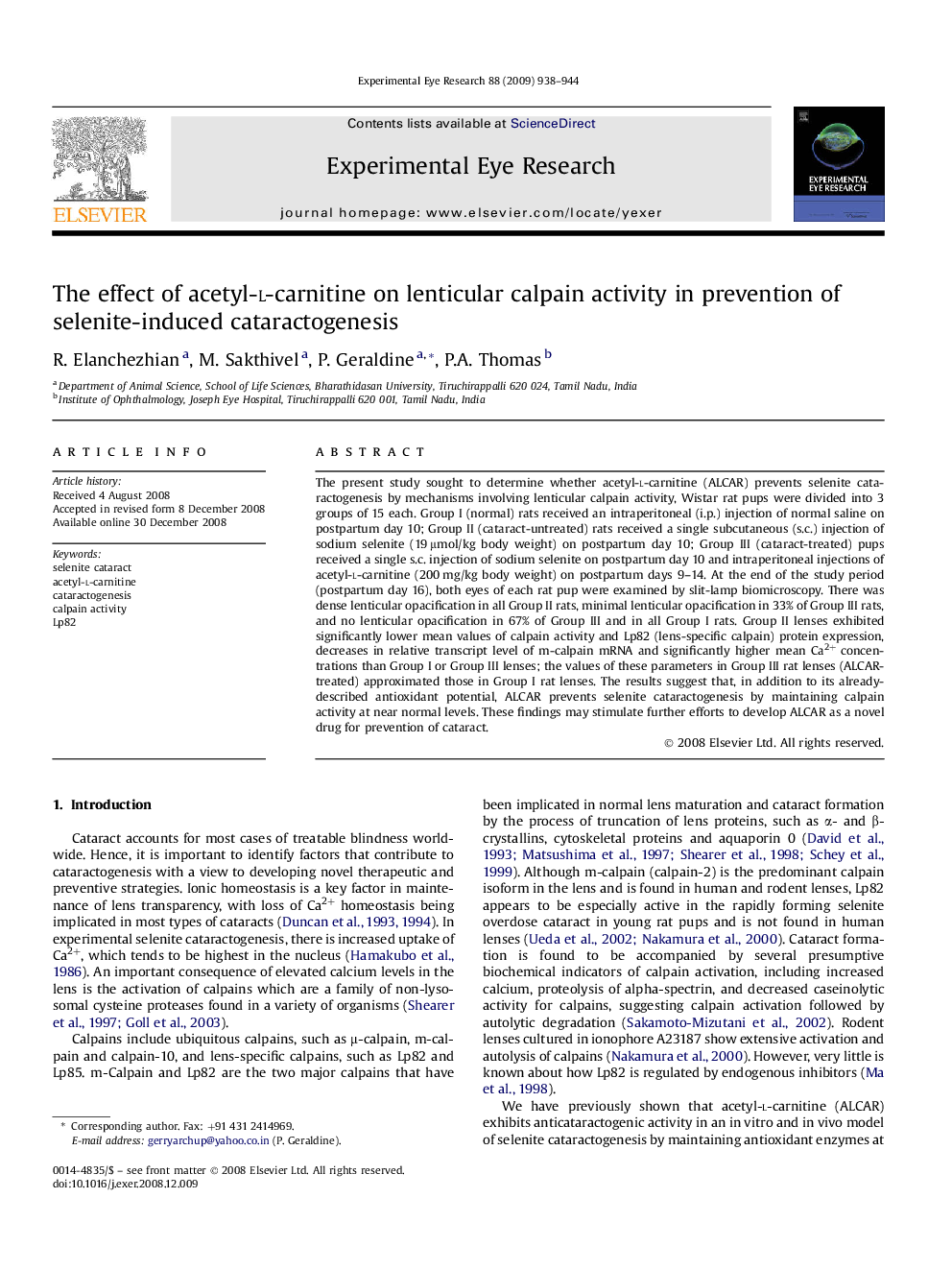| Article ID | Journal | Published Year | Pages | File Type |
|---|---|---|---|---|
| 4012693 | Experimental Eye Research | 2009 | 7 Pages |
The present study sought to determine whether acetyl-l-carnitine (ALCAR) prevents selenite cataractogenesis by mechanisms involving lenticular calpain activity, Wistar rat pups were divided into 3 groups of 15 each. Group I (normal) rats received an intraperitoneal (i.p.) injection of normal saline on postpartum day 10; Group II (cataract-untreated) rats received a single subcutaneous (s.c.) injection of sodium selenite (19 μmol/kg body weight) on postpartum day 10; Group III (cataract-treated) pups received a single s.c. injection of sodium selenite on postpartum day 10 and intraperitoneal injections of acetyl-l-carnitine (200 mg/kg body weight) on postpartum days 9–14. At the end of the study period (postpartum day 16), both eyes of each rat pup were examined by slit-lamp biomicroscopy. There was dense lenticular opacification in all Group II rats, minimal lenticular opacification in 33% of Group III rats, and no lenticular opacification in 67% of Group III and in all Group I rats. Group II lenses exhibited significantly lower mean values of calpain activity and Lp82 (lens-specific calpain) protein expression, decreases in relative transcript level of m-calpain mRNA and significantly higher mean Ca2+ concentrations than Group I or Group III lenses; the values of these parameters in Group III rat lenses (ALCAR-treated) approximated those in Group I rat lenses. The results suggest that, in addition to its already-described antioxidant potential, ALCAR prevents selenite cataractogenesis by maintaining calpain activity at near normal levels. These findings may stimulate further efforts to develop ALCAR as a novel drug for prevention of cataract.
